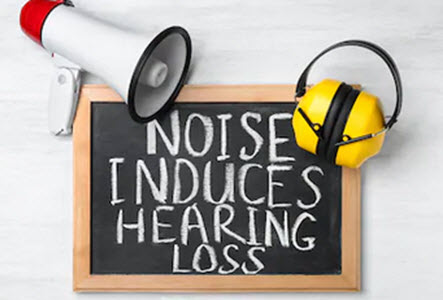Hearing Loss and Workers’ Compensation: What You Should Know

Work injuries can take many different forms. Some occur as a result of a traumatic accident, while others result from exposure to certain substances or conditions over a longer period of time. In the case of the latter — injuries or medical conditions that result from long-term, prolonged exposure — it is important for the injured worker to know that they may be eligible for benefits. Even though the injury or condition did not result from an accident in the traditional sense, Georgia law is clear that certain kinds of injuries that fall into this category can be compensable. Hearing loss is one of them, depending upon the type and degree of hearing loss. The following are some key things you should know about hearing loss and workers’ compensation in Georgia.
Hearing Loss is Commonly Caused by Work Conditions
Certain work conditions commonly cause hearing loss, according to the Centers for Disease Control and Prevention (CDC), and occupational exposures are the cause of hearing difficulty for about 25 percent of workers who say they have hearing problems.
In total, the CDC estimates that about 22 million workers are exposed annually to noise in their jobs, some of which could lead to hearing difficulty or hearing loss.
Occupational Hearing Loss Can Result in Other Workplace Safety Issues
When a worker has difficulty hearing, their ability to remain safe in other workplace conditions can be impacted, as well. For example, as the CDC explains, a worker with hearing loss might not hear an oncoming vehicle, a forklift backing up, or an alerting smoke or carbon monoxide detector.
Some Hearing Loss Can Be Compensable through the Georgia Workers’ Compensation System
Under Georgia law, “compensation for loss of hearing caused by harmful noise” may be compensable through the Georgia workers’ compensation, based on the degree of hearing impairment.
The law is clear that “harmful noise” refers to “sound in employment capable of producing occupational loss of hearing,” which includes sounds of 90 decibels or more. The law clarifies that “sound of an intensity of less than 90 decibels . . . shall be deemed incapable of producing occupational loss of hearing.” Further, “hearing losses for frequencies below 500 and above 2,000 cycles per second are not to be considered as constituting compensable hearing disability.” A person’s payment will then be based on their percentage of hearing loss.
Accordingly, it will be essential to document the type of sound, intensity, and frequency to which you were exposed in the workplace in order to receive workers’ compensation benefits. A lawyer can help with this process.
Contact a Workers’ Compensation Lawyer in Macon, Georgia
Anyone who has experienced significant hearing loss as a result of their job duties or work environment should get in touch with one of the experienced Macon workers’ compensation attorneys at the Law Offices of Buzzell, Welsh & Hill to find out more about seeking workers’ compensation benefits. While it is important to understand that all types of hearing loss are not compensable, at the same time, there are many forms and degrees of hearing loss that can be compensable through the Georgia workers’ compensation system. Contact us today to find out more about your eligibility for benefits.
Sources:
law.justia.com/codes/georgia/2010/title-34/chapter-9/article-7/34-9-264
cdc.gov/niosh/topics/noise/about.html#:~:text=Hearing%20Loss%20and%20Tinnitus%20Are%20Common%3A&text=About%201%20in%208%20people,for%201%20in%204%20people
